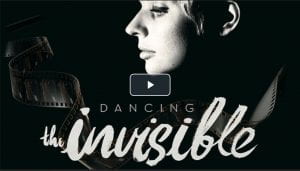Women Beside the Screen – Assignment 1
Prompt 1 – Film
Prompt 2 – Six Questions
- Explain where you started your career from university and how did you find your love for film?
- What challenges have you overcome as a women film producer?
- What do you think holds women back from pursuing a career in the film industry?
- Who do you think women should be looking up to as inspirations within the industry, and why?
- How do you think women should be approaching their way intro the industry?
- I notice that you are the president of the Natalie Miller Fellowship award, this fellowship you and Natalie are running why do you think these types of awards are so important for women?
Reflection
The industry professional I will be interview is Sue Maslin. Best known for the producer of the Dressmaker, I am looking forward to meeting online with her to discuss women within the film industry and see her perspective on women in the industry. She has an endless amount of knowledge about the industry and how women are being perceived and what exactly women are doing to get their name out and help even the ratio.
For the interview with Sue Maslin I am not expecting to make any revelations about the film producer but, more to discover her inspirations for finding a great story that is worth putting on the big screen. Through her drive for what she does and her contribution towards the film industry especially for women.
As the President of the Natalie Miller Fellowship Award she would come across a lot of young women aspiring who would like to become a director or producer. I would like to know more from her perspective us as young female creatives we can do more of to immerse ourselves within the industry.
Each question focuses on different aspects revolving around women and their contribution to the film industry, Sue’s contribution and expertise is invaluable for young creatives and as this studio continues throughout the semester it’s great to be able to learn more and better equip ourselves for the future and be ready to take on the industry and if we can learn from Sue Maslin that is fantastic.
The strategy for the interview will be to remain casual and conversational but gather insight of her opinions and passion for the film industry. Through these insights I hope that audience who will watch will take away some points on how she answers the questions to inspire the next generation of fellow female creatives.
Since the interview will not take place in person but via online meeting room, the interview will not be very long therefore the questions will not go into deep complex ideas. The questions aim to provide a whole perspective of Sue Maslin and her opinions towards women in film and her own personal journey through the film industry.
I look forward to hearing what Sue Maslin has to say. This will be my first ever interview with someone and I am really excited that it’s going to be her. I will ensure that I am prepared and organised for the zoom meeting.
Prompt 3
The non-fiction film I chose to look at was Jill Billcock: Dancing the Invisible (2017) directed by Axel Grigor. The film looks at the amazing career of Jill Bilcock and her outstanding work ethic to move audiences through editing. There were many styles throughout the documentary that were noticeable and showcased who Jill Bilcock is as an editor.
The stylistic choice was very interesting, the approach from Axel Grigor to have this theme of movement that Jill talks a lot about her style of editing thought-out the film was also metaphorically noticeable and added touch through the title but also who she is as a person. I noticed that words such as movement, rhythm and dancing were contributing towards the story of Jill Bilcock.
The story telling approach of the film was very heartfelt, you could see from the interviews the way her fellow colleagues spoke very eloquently about her work ethic and her drive to find the perfect edit. The way she operated as an editor and how she was always pushing the boundaries and always never thought twice about the rules. I realised that interviewing family member and her husband gave it the personal touch and helped with the story line of getting to know Jill Bilcock the editor. Having this personal touch of family contributing to how she was brought up and her childhood helped as an audience member gain perspective of her outlook on life. Her open mindedness really shown through this documentary. Her open mind brought inspiration to her editing and the idea of endless possibilities of the way a cut could be finalised.
The editing style I felt this was an interesting as this was a film about a film editor, I thought describing what people within in the film were talking about helped to provide a visual example of Jill’s works. The interview style was very much positive in the sense they have nothing negative to say about Jill. To see a variety of people contributing and commenting on their own experience of working with her ranging from Baz Luhrmann, Cate Blanchett, Fred Schepisi and Sue Maslin shows her dedication to any project and commit to the directors vision. This was an interesting documentary to pay tribute to a great editor within the film industry and how she has helped make so many great films.
References:
I Am Women. 2020. [film] Directed by U. Moon. Australia.
Jill Billcock: Dancing the Invisible. 2017. [film] Directed by A. Grigor. Melbourne Australia.
Ride Like a Girl. 2019. [film] Directed by R. Griffiths. Australia.
